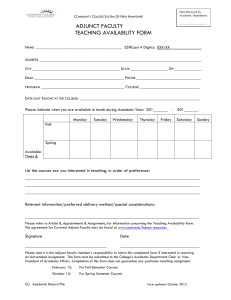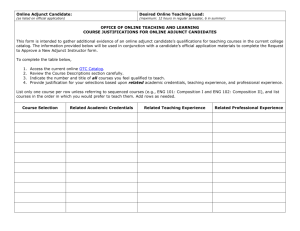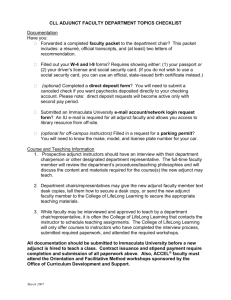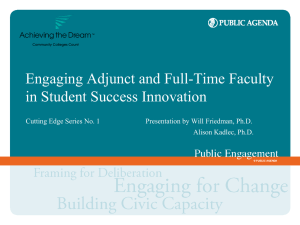The following is an overview of the General Health Program... Chabot College General Health - Program Review Completed
advertisement
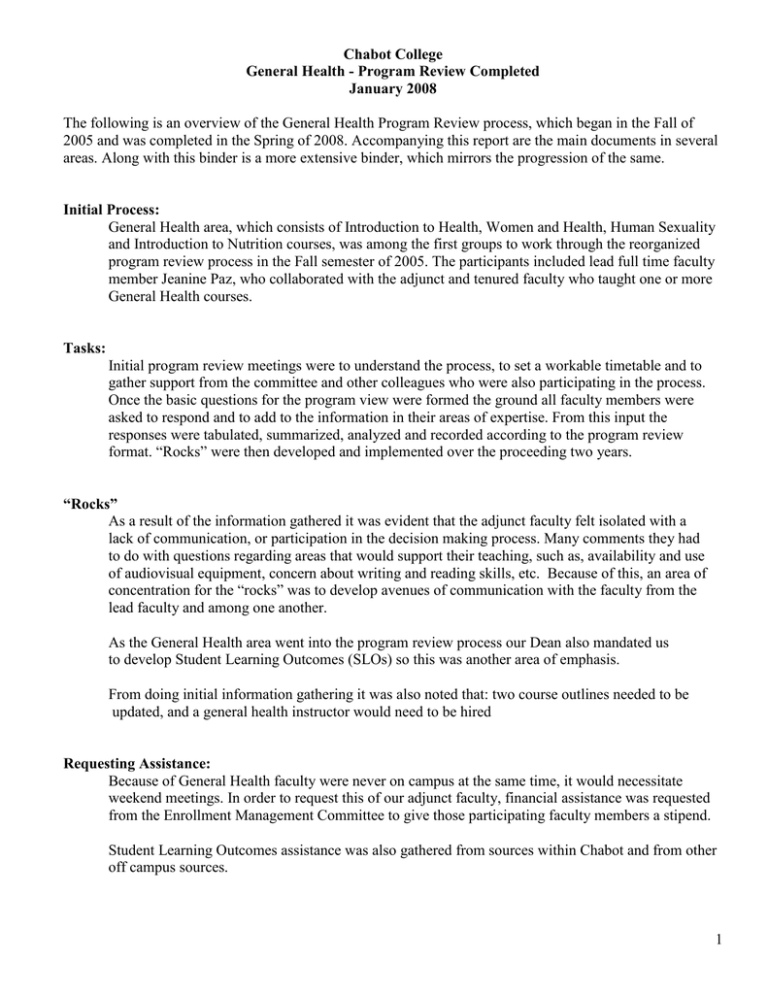
Chabot College General Health - Program Review Completed January 2008 The following is an overview of the General Health Program Review process, which began in the Fall of 2005 and was completed in the Spring of 2008. Accompanying this report are the main documents in several areas. Along with this binder is a more extensive binder, which mirrors the progression of the same. Initial Process: General Health area, which consists of Introduction to Health, Women and Health, Human Sexuality and Introduction to Nutrition courses, was among the first groups to work through the reorganized program review process in the Fall semester of 2005. The participants included lead full time faculty member Jeanine Paz, who collaborated with the adjunct and tenured faculty who taught one or more General Health courses. Tasks: Initial program review meetings were to understand the process, to set a workable timetable and to gather support from the committee and other colleagues who were also participating in the process. Once the basic questions for the program view were formed the ground all faculty members were asked to respond and to add to the information in their areas of expertise. From this input the responses were tabulated, summarized, analyzed and recorded according to the program review format. “Rocks” were then developed and implemented over the proceeding two years. “Rocks” As a result of the information gathered it was evident that the adjunct faculty felt isolated with a lack of communication, or participation in the decision making process. Many comments they had to do with questions regarding areas that would support their teaching, such as, availability and use of audiovisual equipment, concern about writing and reading skills, etc. Because of this, an area of concentration for the “rocks” was to develop avenues of communication with the faculty from the lead faculty and among one another. As the General Health area went into the program review process our Dean also mandated us to develop Student Learning Outcomes (SLOs) so this was another area of emphasis. From doing initial information gathering it was also noted that: two course outlines needed to be updated, and a general health instructor would need to be hired Requesting Assistance: Because of General Health faculty were never on campus at the same time, it would necessitate weekend meetings. In order to request this of our adjunct faculty, financial assistance was requested from the Enrollment Management Committee to give those participating faculty members a stipend. Student Learning Outcomes assistance was also gathered from sources within Chabot and from other off campus sources. 1 Reporting: The lead faculty member met a few times with the entire program review committee at the beginning of the process and when the Program Review report and “Rocks” report were presented. Questions were answered and points of confusion were clarified. Accountability of faculty meetings and expenditure of funds was reported to the Enrollment Management Committee. Meetings: There were 5 meetings from June 2006 though October 2007. The first three meetings provided stipends for the faculty. Each meeting had a specific focus, task and homework. Although all members could not attend, information was communicated either in person or via emails. Results of Program Review: Four main addressed and accomplished during this program review: 1. Developed and tested 2 Student Learning Outcomes in Introduction to Health and Women & Health. 2. Updated course outlines for H-1: Introduction to Health and H-4: Women and Health 3. Hired one General Health Instructor 4. Provided more communication and participation among full time and adjunct faculty. In addition to the main accomplishments there were: 1. Introduction of on-line H-1 course. 2. Introduction of a hybrid H-4 course 3. Introduction of a new General Health on-line course: Healthy Weight Loss 4. Faculty participation in choosing new textbook for H-1 5. Faculty participation in determining if a customize H-1 was possible 6. Adjunct faculty mentoring 7. Opportunities to share concerns, challenges and successes in the classroom It is refreshing to look at the accomplished over the past several years. The Program Review process though arduous, strengthened the camaraderie among the General Health faculty, which in turn benefits our students. Because of timing, we were developing, testing and evaluating our SLO before formal college wide acceptance and formation of the Student Learning Outcomes Committee. This at times doubled the work or redirected our original efforts. 2
